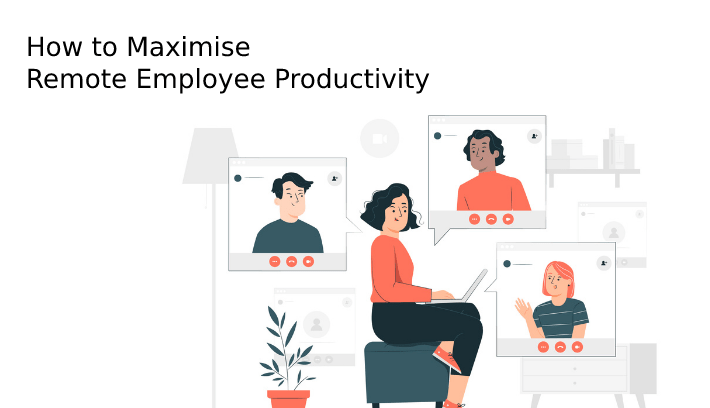
Freelance Work in Retirement: What You Need to Know
Have you been dreaming of retirement for the last decade or so? As it approaches, are you starting to wonder if you’re as eager or able to retire as you thought you were? Many retirees realize that they need to continue working as the date draws closer.
For some, it’s about financial security, recognizing they would like to have more set aside for their golden years. Others simply want to stay busy.
After working for 30-40 years, suddenly having nothing to do might be great for the first few weeks but can get boring quickly. And yes, you most likely have hobbies, but with nothing but time on your hands, the cost of those hobbies can skyrocket.
Reasons to Work in Retirement-
Don’t worry, you’re not alone! According to Forbes, “30% of seniors seek to work past retirement.” Retirees have reported that the following are some of the most common reasons they remained in the workforce. Do you relate to any of these?
1.Building Financial Stability
As people live longer thanks to medical developments, there is an ever-increasing need for your retirement funds to stretch farther. If you’re not sure about the ability of your retirement income to meet your needs, working while you’re a younger retiree can help ensure your stability later on. Many companies offer retirement at 62. Betty White was an amazing woman, but few of us sought to work as long as she did.
Instead, consider adding to your nest egg with a partial retirement, such as a part-time job, becoming a consultant, or launching a freelance career. Later on, when you decide you’re truly ready to call it quits, your savings account will be padded.
2.Adding to Social Security
Tied into the tip above, your social security will continue to grow up to age 70. Most employers consider 62 the official retirement age, but your benefits will be pro-rated unless you wait until the government-recognized, “full retirement” age of 66.
As a bonus, the longer you add to your social security, the higher your benefit will be in your older retirement years. Generally, you’ll be eligible for your entire benefit by delaying until your full retirement age.
3.Funding Medical Insurance
Retiring before Medicare is an option at 65? The price of medical insurance can be staggering, even for just those few interim years. Finding a part-time position that can either supplement your insurance costs or cover them entirely will help keep your savings accounts from being drained.
- Launching a Second Career You’re More Passionate About
Not every reason to postpone full retirement is about finances. Many adults in their 60s and 70s are not ready to slow down. Some have been waiting to pursue a second career they’re more passionate about.
Did you spend your life as an accountant? Maybe your second-career goal was freelancing to support small businesses with affordable bookkeeping. Have you created a hobby that you’d love to turn into a passion? Or, perhaps you’d like to follow your passion, such as nature conservancy or supporting at-risk youth?
Retirement gives you the ideal opportunity to turn your passion into a profitable, full-time or part-time role that adds meaning to your life.
- Staying Active and Social
For some, the ability to continue working ensures a schedule to maintain that sees them interact with teammates routinely. Even if you live near your relatives, you might thrive on your relationships at work and aren’t ready to see that part of your life go.
Joining a team when you’re older allows you to build new relationships in a very unique and meaningful way. As you work side by side with younger coworkers, inevitably, you’ll impact each other. Perhaps they’ll be able to help you stay current with the latest technology while you share problem-solving ideas that can only be gained with years of experience.
6.Sharing Your Knowledge
Speaking of sharing, you have a wealth of information after a long career. Consider becoming a consultant or industry teacher to share that knowledge. You’ll continue working within the boundaries and flexibility of your schedule. Commit as much time as you want, taking vacation and family time as you prefer. Analyze the things you didn’t love about your job, and chances are you’ll find that it was tied to company work rules—no need to worry about those as a consultant.
If you committed to working in a career field for your entire life, you probably genuinely loved what you did. Given a new perspective or a little space, you might find that you miss it more than you anticipated.
7.Funding Your Travels
For many retirees, their vision of retiring includes hitting the road in an RV or traveling abroad. All of that adds up, and the reality can be way more expensive than anticipated.
Rather than let your wanderlust die away, fund your travel bug with a flexible job that you can take with you. Whether you travel a few weeks out of the year or jump full-fledged into becoming a digital nomad, you can find a role in retirement that you enjoy and that supports your excursions.
Finding a Flexible Job in Retirement-
One of the priorities that many retirees seek is maintaining their schedule and prioritizing personal commitments and family relationships. If balance is what you need, a flexible job, such as freelancing or consulting, might be precisely what will help you ease into your retirement.
Whatever your reasons are, if you’re considering your job options in retirement, StartWorkNow has loads of tips to help you get started. If you’re tempted by the idea of a flexible schedule without a stressful commute, a StartWorkNow membership can help you land your ideal role. We update our jobs daily with verified, scam-free listings to keep you safe in the online job search world. Explore all of the ways a StartWorkNow membership can support you.






